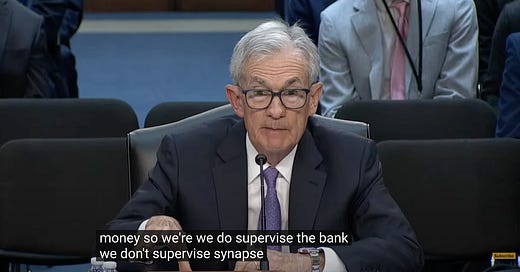Fed Chair Powell Got It Wrong
Regulators Have Clear Authority, Duty To Supervise Third-Party Service Providers Like Synapse; What Happened To Synapse's Missing Money?
Hey all, Jason here.
🇫🇷 Happy Bastille Day to those who celebrate!
If you somehow missed my big news last week, I’m excited to announce that I wrote a book! Yes, it’s about banking-as-a-service.
While it doesn’t officially publish until December, you can pre-order it now. If you order directly from the publisher and use the promo code “BaaSIsland,” you g…



